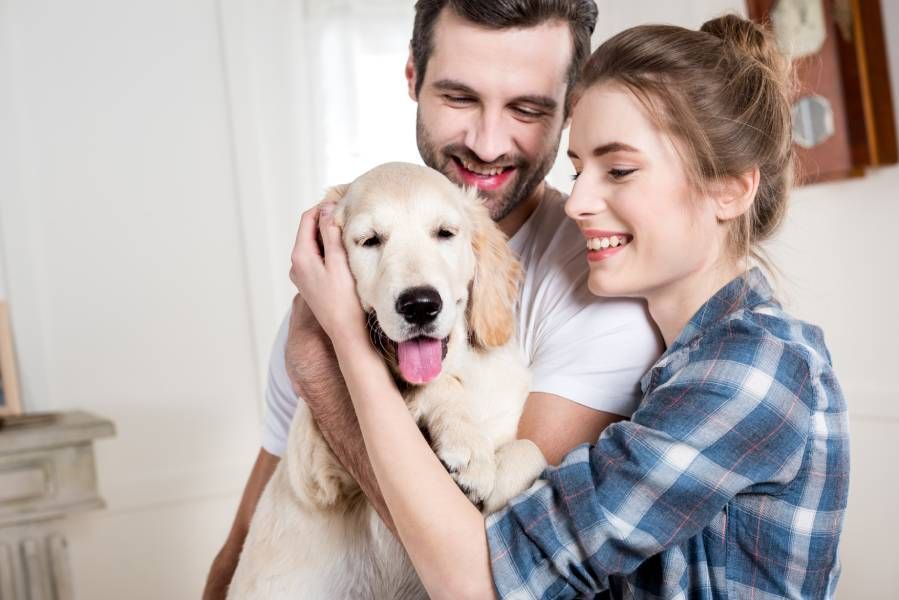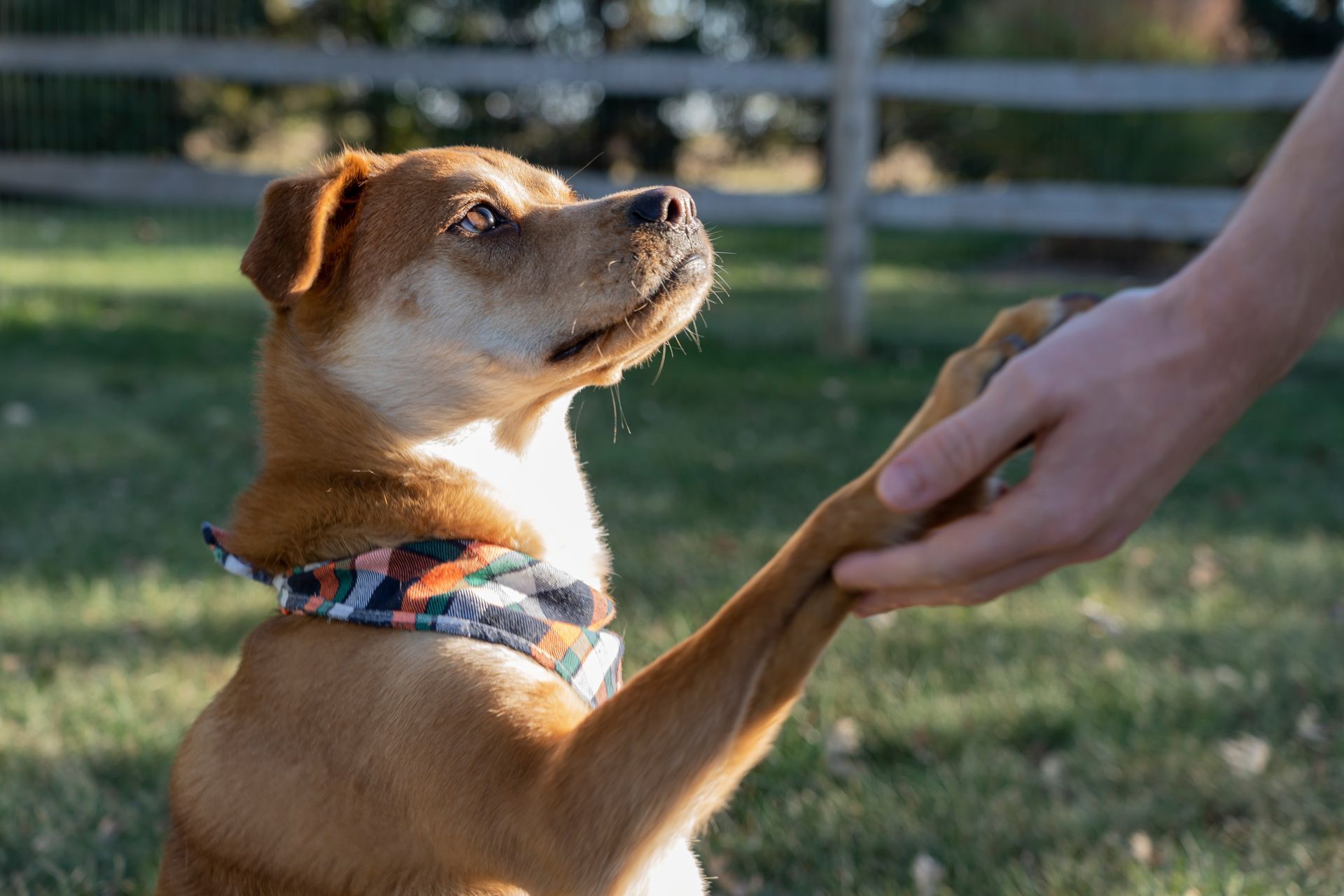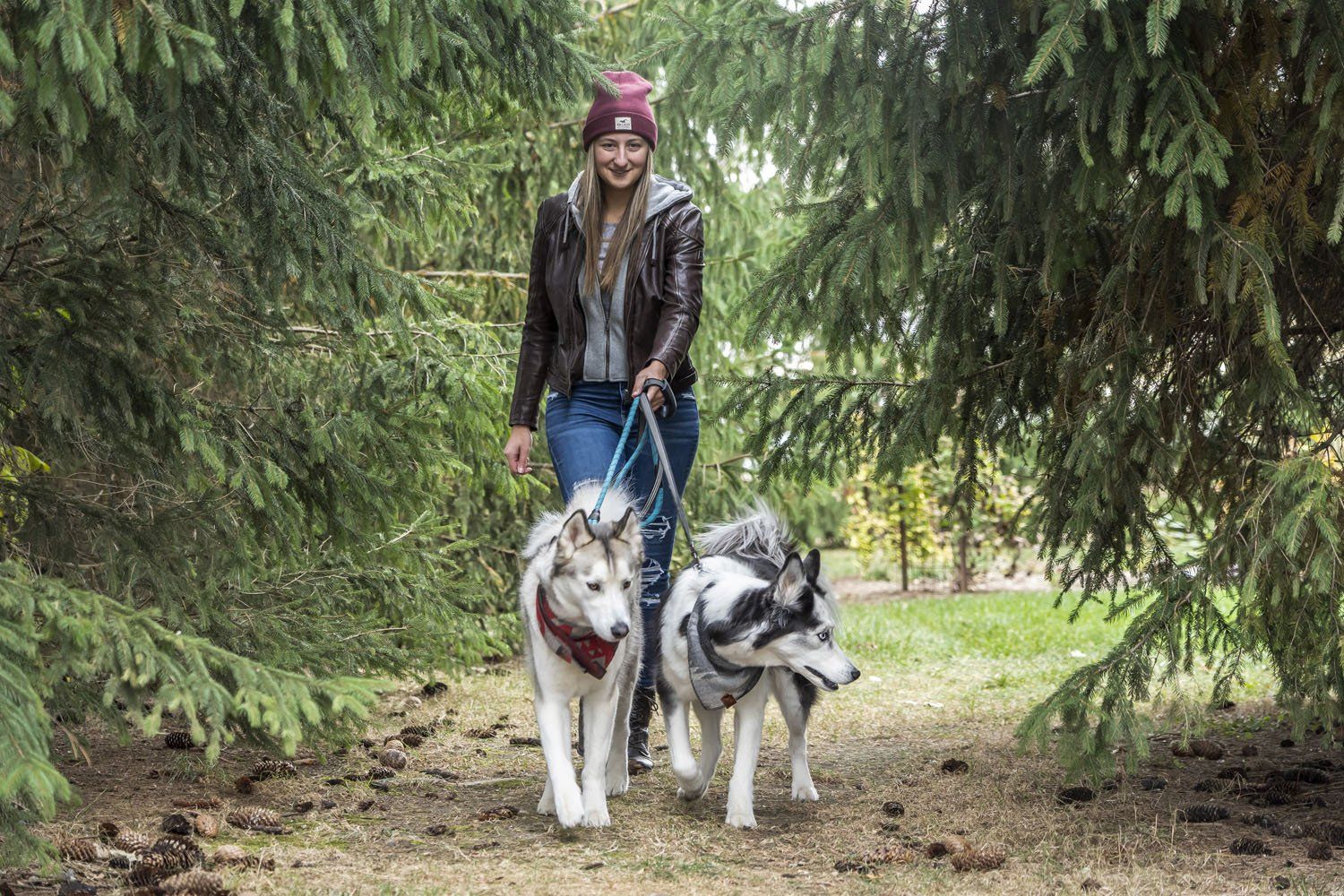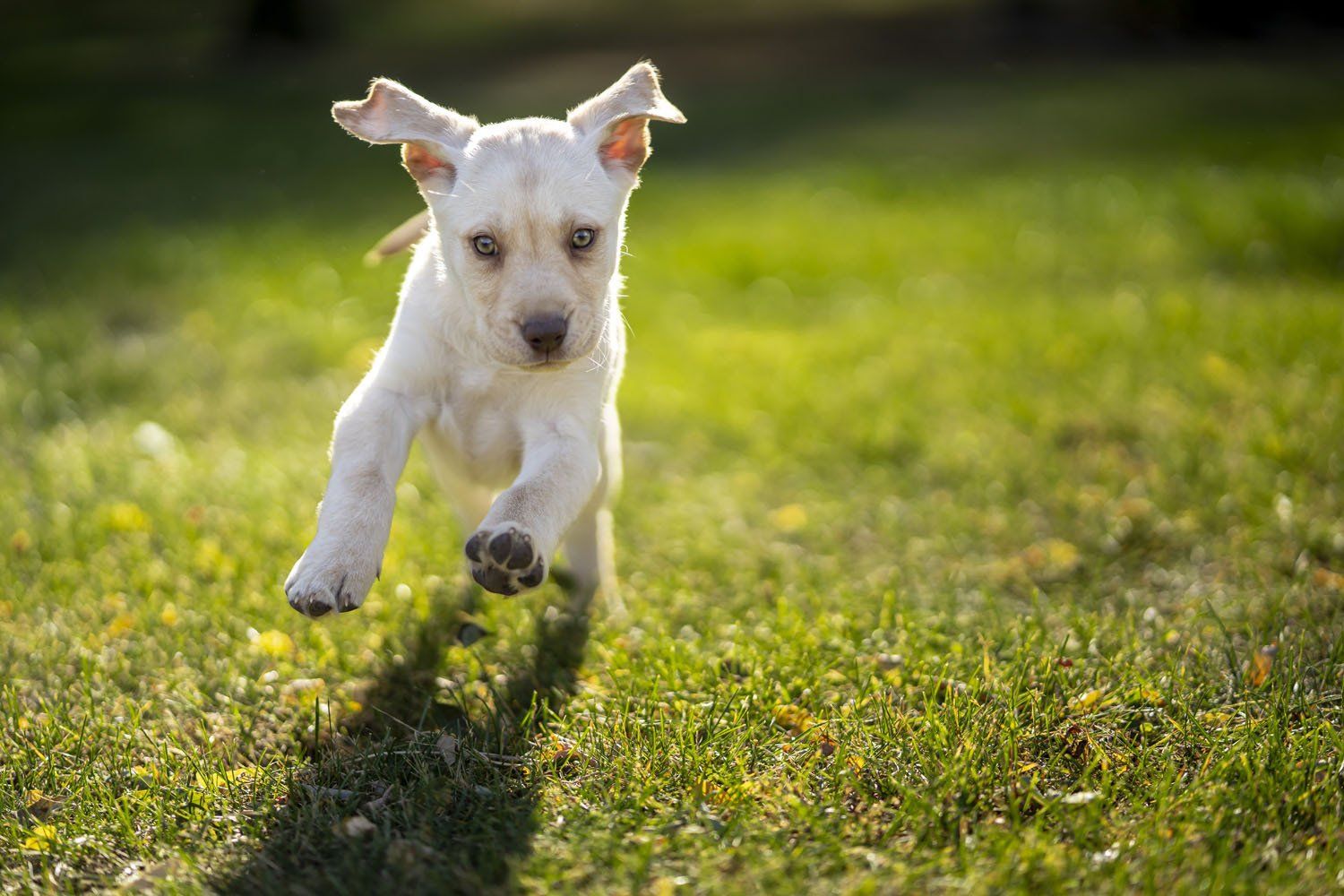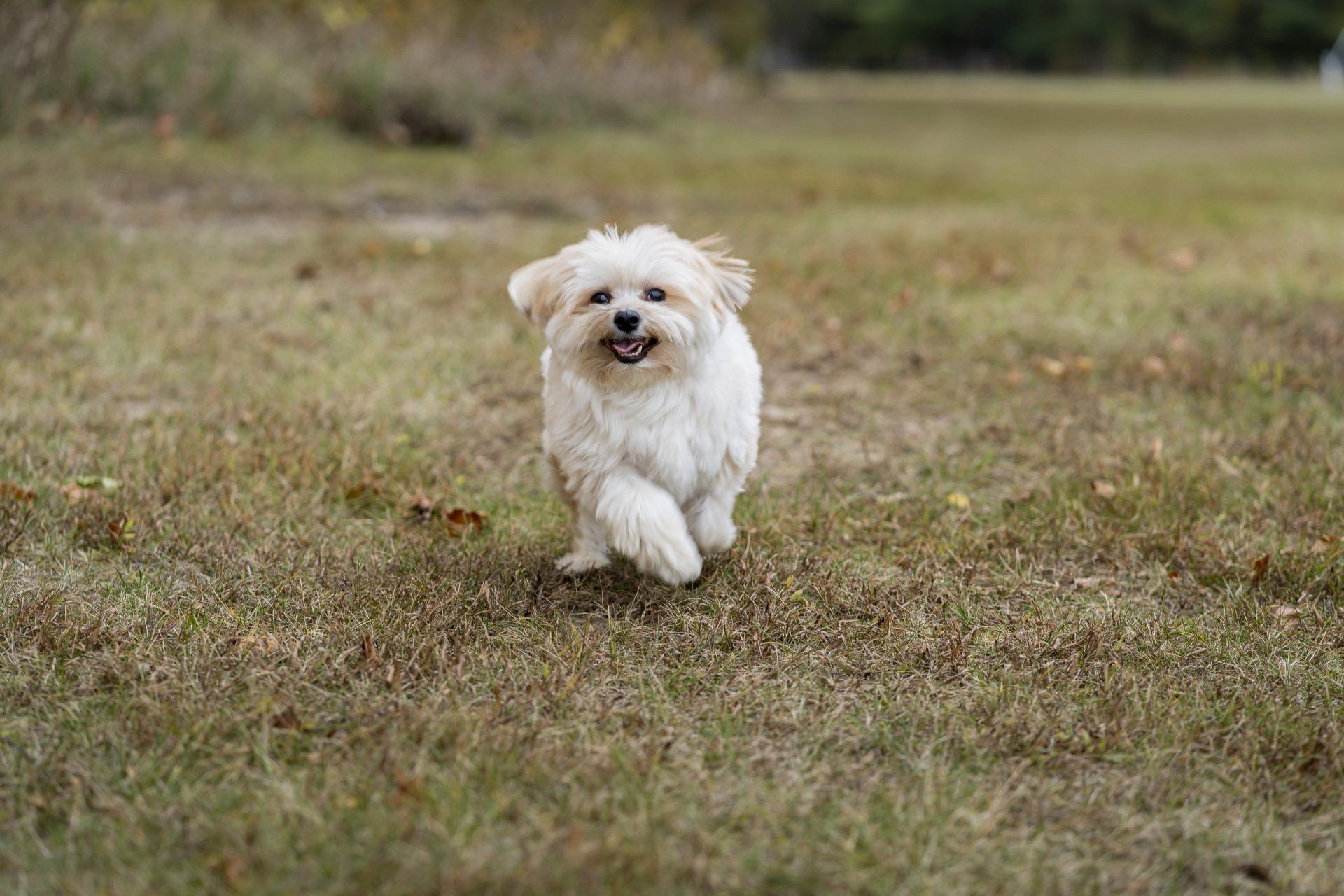Independence Day From Your Dog’s Firework Fears
If you’re reading this article, you are likely a conscientious pet parent who’s last Fourth of July celebration or two was dampened by a miserable pooch. Many of us can relate to the experience of finding that our animal companions are less enthusiastic about the sensational firework displays that we Americans enjoy in celebration of our Independence Day. Every year, animal shelters are inundated with lost pets, some injured during their escapes. Even some children do not react with glee to the sights and sounds of the holiday; the bizarre and erratic noises that intrude the predictable hum of everyday life can take some getting used to. When you think about it, the heightened sense of hearing that makes canines highly intelligent and perceptive also means that the fervor of the Fourth is heard much more acutely to sensitive ears. So, it’s not abnormal for dogs and other pets to react in fear and anxiety to loud and unusual sounds. Hiding, shaking, pacing, panting, barking, refusing to eat, and destructive behaviors are common.
Fears vs Phobias in Dogs
There is a distinction, however, between normal, cautious fear and phobias. Unlike typical fear states, noise phobias actually increase with repeated exposure. Humans and many animals tend to become naturally desensitized to unfamiliar stimuli, like loud noises, and become conditioned to respond less dramatically. Eventually, the “fight-or-flight” response innate in most organisms can be offset by the brain’s immediate recognition of a previously encountered threat and the stress response is dialed down to a minimal or manageable level. Phobias often surface in animals with a history of abuse or trauma, but some breeds are genetically predisposed to more intense emotional and physical responses. Age, too, is a factor, as well as existing pain or illness. Phobic reactions are excessive and irrational, sometimes lasting long after the cause is removed. Not only are phobias unresponsive to desensitization, their impacts on your pet’s health can persist and contribute to chronic conditions and even serious disease. Recurring episodes of acute stress have been shown to shorten dog lifespans due to negative effects on hormonal and immune system health.
It's important to know that even if our pets do not exhibit phobic behaviors, ignoring or disciplining fearful and anxious reactions can actually lead to the development of more severe phobias. Since we love our furry friends like family, we should know them well and become familiar with their normal personality, body language, and habits, so that we recognize when they look or act differently. At the same time, being proactive and prepared for upcoming noisome events is the most thoughtful and responsible way to minimize your pet’s potential distress. Firework displays represent a unique challenge to fearful pets, since the pops and booms can be prolonged and heard for miles, and there is little an animal can do to escape. Still, there are multiple strategies that you can put in place to help protect your pup, ease his anxiety, and keep everyone safe and happy.
Help Your Dog Avoid Stress with Fun Activities
In some cases, just getting your dog good-and-tired can be quite effective in minimizing his reaction to commotion later in the day. Take a long walk or hike, go on a long car ride, or meet familiar friends at your local dog park to exhaust his energy. If leaving home is not an option, play fetch for a while! Feed your dog and ensure they go potty before the festivities start in your neighborhood. Even if you aren’t actively lighting sparklers, plan ahead and create a safe space for your pet. Especially if you are gathering with friends or family, designate a room that you can keep dark, quiet, and comfortable. If your dog is crate-trained, place the crate in the chosen space. Add a few new toys and treats to keep him busy. White noise from a fan, radio, or even from YouTube can drastically reduce the auditory assault on your dog’s sensitive ears. You know your pup best, but having a variety of options in place provides the greatest chance of achieving a successful and enjoyable evening for all.
While every dog is unique and may respond better to one mitigating strategy over another, there are clearly approaches that are not effective. By reading this article, you have already crossed off the first no-no: indifference. Fussing over your dog can accelerate his anxiety, but ignoring him may be just as harmful. You should offer plenty of calm attention, praise, and comfort to your best friend to make him feel at ease. Also, although it shouldn’t need to be mentioned, punishing your pet’s fearful behavior is not only cruel, it will likely backfire by creating greater distress in the present and predicting worse reactions in the future. Likewise, aggression can incite aggression, and fearful animals often become dangerous animals. Finally, it might seem fun from your perspective, but don’t take your dog with you to any public Fourth of July celebrations. Even if he is well-socialized, the mix of noise and crowds may trigger unexpected responses. Certainly never leave your pup outside, but regardless, as a good precaution, make sure your dog is wearing a collar with ID tags or is microchipped for the best chance of a quick and safe return in case of escape.
For optimal results in dogs with phobias, experts recommend careful, patient counter-conditioning techniques involving incremental noise exposures combined with comfort and reward. In most cases, behavioral training should always be tried first, but whether or not your dog has a serious noise phobia, it’s always wise to bring up his anxious behaviors with your veterinarian or pet therapist. Mild sedatives are sometimes the best option to protect your beloved friend, reducing the risk of trauma and preventing injuries, especially if the dog is older or in compromised health. Otherwise, although medical intervention is not always necessary, professionals may have expert insights or ideas that don’t require a prescription. In fact, some commonly used anxiolytic drugs, like benzodiazepines, can worsen phobic tendencies, since they have the unintended effect of blocking the process of memory consolidation that can assuage future overreactions.
A New Way to Help Your Dog Handle Stress
Today, more veterinarians are become receptive to recommending natural supplements for stress management, and many herbal formulas are scientifically proven to soothe pet anxiety. As interest has soared in the use of hemp for managing human anxiety, pet health advocates and many reputable organizations have turned their attention to promoting its calming benefits for our canine companions as well. Even the World Health Organization has endorsed hemp as safe for use in most animals. The rationale is clear: both dogs and humans, like all mammals, have an endocannabinoid system through which hemp exerts its influence on the central nervous system. A primary beneficial action of hemp on endocannabinoid receptors is the promotion of serotonin production, the neurotransmitter primarily known for its relaxing and mood-enhancing effects.
Be sure to discuss giving hemp to your dog with your veterinarian in advance of any events, as the appropriate dose and response is known to vary between individual breeds, weights, ages, and activity levels. Generally, gradual, consistent doses are advised to help your dog adapt and to foster daily tranquility. Then, on predictably stressful days like July 4th, a larger dose can be given to amplify hemp’s benefits. When dosed without food, hemp delivers results quickly, and can be given within an hour if plans suddenly change. If taken with food, hemp supplements may require a slightly larger dose and it may take a bit longer to see results. The pet health market is booming with creative hemp-based products in liquid, powder, and chew-based forms. Many hemp pet supplements include additional therapeutic herbs and nutrients intended to maximize your pet’s health while keeping their tails wagging.
With this information and these preparation tips in mind, make this the happiest Fourth of July yet with freedom from anxiety for you and your best friend!
